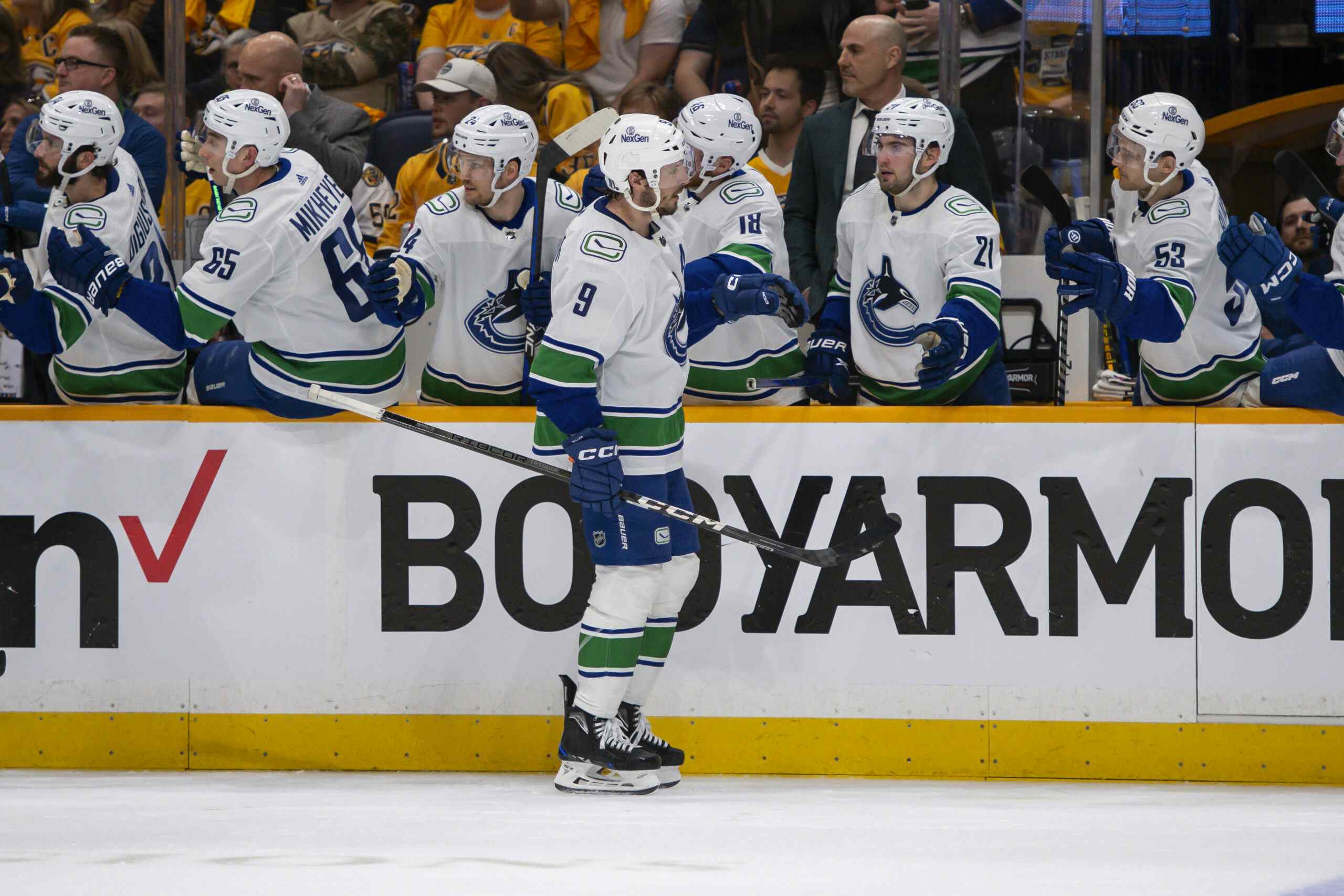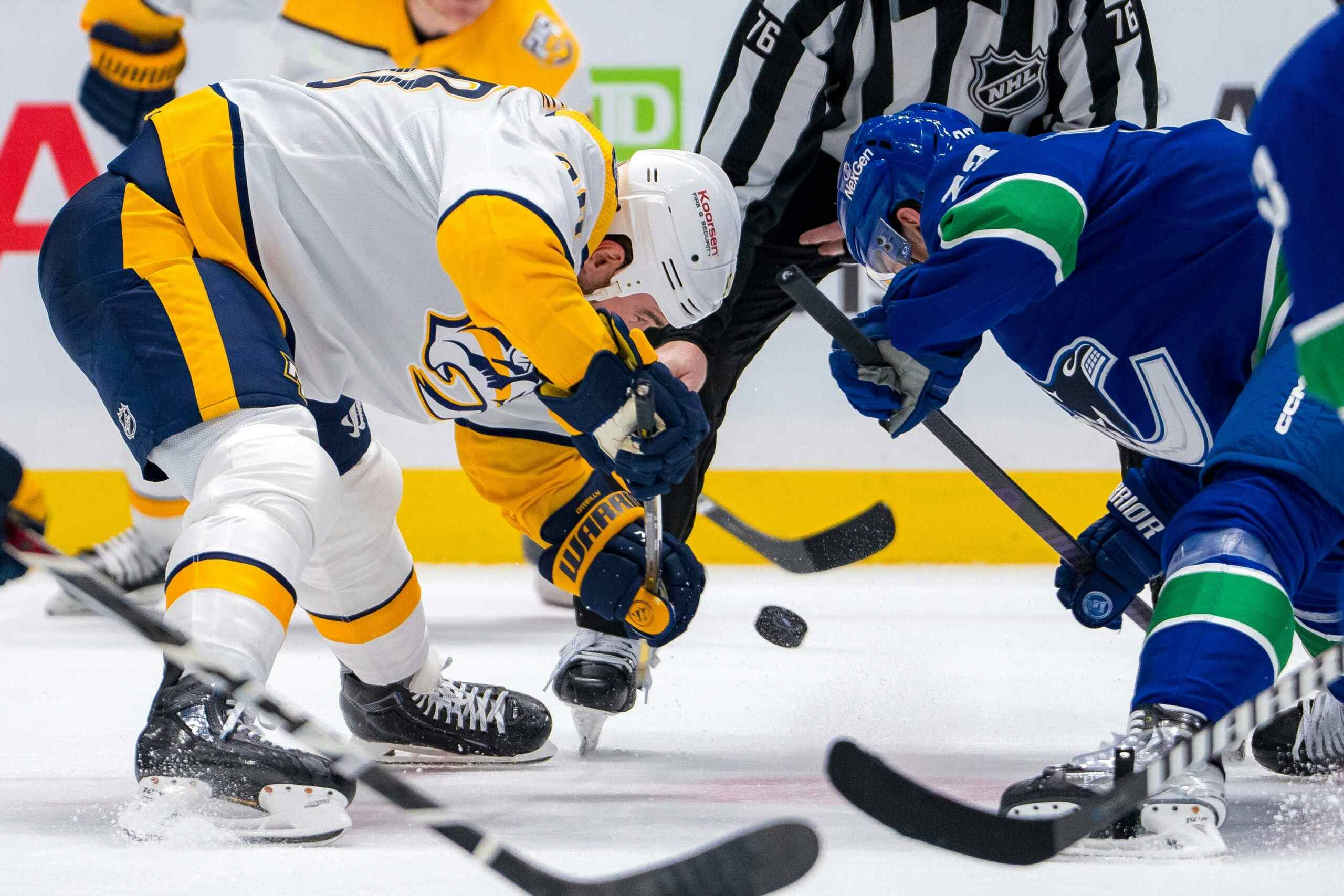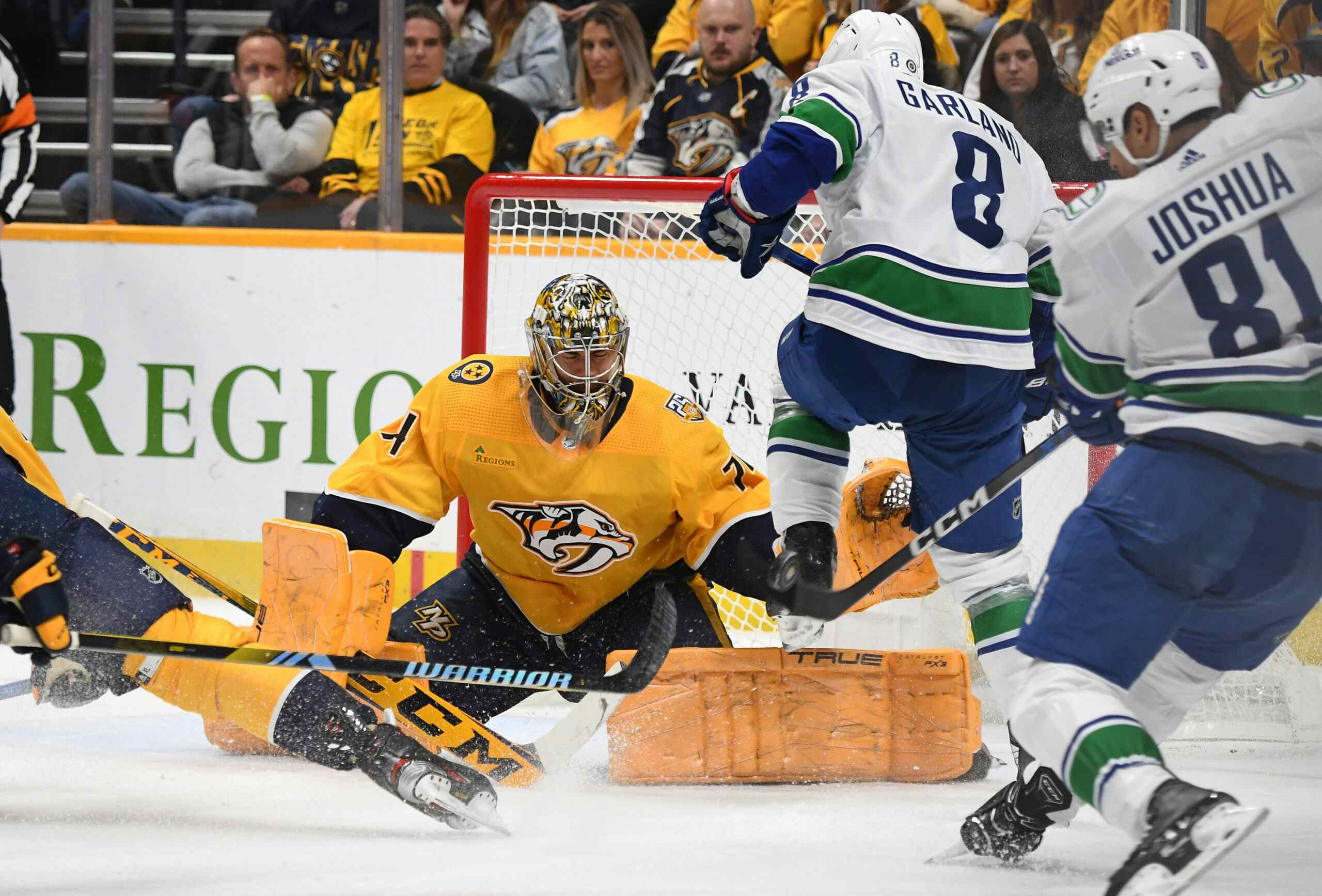Permanent Decertification Is Certifiable
The momentum is growing. Every day the calls to decertify or otherwise disband the NHLPA are growing. And I don’t mean from NHL players.
No, hockey fans and media alike are now so fed up with what passes for collective bargaining in the NHL that they want to blow up the entire system. We’re not talking just decertifying for the purposes of forcing the NHL to actually make a deal under threat of anti-trust lawsuits, i.e. what the NHL is alleging and what the NHLPA surely intends to do.
No, there are now calls to permanently abolish the NHLPA and in so doing completely free up all restrictions to player movement, including the NHL draft.
Personally, I’m not so sure this is a great idea…
The world of international soccer is held up as an example of the halcyon days to come after we get rid of the NHLPA. You know, the system put together by those fine, upstanding gentlemen at FIFA. At least in one respect the transition from the NHL won’t be too drastic.:
Under the international soccer transfer system, there are few restrictions on player movement when they are not under contract. Essentially everyone is a free agent at the end of any contract. Heck, they’re actually free agents as soon as they have six months or less remaining on their contract; they can make a deal with a new team at that point, they just can’t join them until their current contract is over and the transfer window opens. (Special thanks to our own Patrick Johnson for helping me understand the arcane world of the FIFA transfer system.)
Can you imagine Sidney Crosby signing a new contract to move to the Flyers while still having six months to play out on a contract with the Penguins?
Which isn’t say that an NHL without player contracting restrictions would necessarily result in rules similar to those FIFA has developed in light of various challenges to its transfer system over the years. But conceptually, the results would be similar: no entry draft to assign or otherwise hold "rights" to sign players (no restriction on signing a contract at a younger age, for that matter).
But what’s the draw in this type of system?
Sure, for players the benefits look obvious. But looks can be deceiving. We’ve seen how even mediocre players have gotten paid as soon as they hit free agency in the NHL’s restrictive system. It’s easy to assume that this trend would just be amplified under universal free agency.
I’m sure the elite players would substantially increase in value as free agents under a cap-less system. As Tyler Dellow laid out in a couple of recent posts, the current cap structure under the previous CBA has limited the salary growth of elite players, as compared to everyone else:
I’ve argued before that the best players did really poorly in the 2005 CBA, in that there was fantastic salary growth for lesser paid players, while the guys at the top saw marginal increases. Another way of expressing that is to look at how much the salaries have grown for the highest paid players in the game since 2000-01 – it comes out to about a 1.2% annualized growth in salaries. League revenues have grown by something like 7.5% per year. The people who have been rewarded by the growth in hockey since 2000-01 with a bigger piece of the pie each year aren’t the guys who bring people to the rink and lift them out of their seats; they’re the guys who fill out the rosters in the NHL’s cartel and the guys who run the cartel.
So while I’m sure blowing up the cap system would loose the fetters holding back top end salaries, I’m not so sure the bulk of the NHLPA would fare as well. Which probably explains why the idea of decertification is only brought up as a point of leverage in collective bargaining situations. The Players’ Association actually benefits the bulk of its members. In a completely free market for players, those that are easily replaceable and/or interchangeable wouldn’t have the leverage to secure guaranteed contracts or other favourable contract provisions when negotiating as individuals. It is actually the limits on supply every free agency period that serve to drive up the price. Textbook economics.
To paraphrase completely mangle Benjamin Franklin, those who would give up security in exchange for free agency, might get what they ask for:
Ok, so for the bulk of NHL players, maybe this decertification thing isn’t such a great idea compared to the status quo.
But who cares about the players? Even the losers under this scenario would still be winners in the overall scheme of things: getting payed hundreds of thousands if not millions of dollars to play a game. Why are more and more NHL media and fans so apparently keen on blowing it all up?
Well, one of reasons cited as a benefit of this type of system is a lack of lockouts. Sure enough, that is true. There has never, to my knowledge, been a lockout or strike in European soccer. Without a collective agreement, the relationship between NHL teams and their players would no longer be governed by labour laws, and instead fall under anti-trust laws in the U.S. and competetion laws in Canada. Under anti-trust laws, any collective act, such as a lockout or any rule openly or secretly restricting player’s contract rights would open the door to charges of collusion and be liable for triple damages under US anti-trust legislation. So, by definition, no CBA, no lockouts.
Can’t argue with that. But what I can argue with is everything else that would come with this.
As noted above, universal free agency would be great for the elite players. But lets think about what that actually means. Teams with the ability to commit to sky-high, multi-year contracts would accumulate the elite players. Small market teams that couldn’t compete would either wind up with cast-offs and retreads, or would go broke trying to keep up. Over time the NHL would evolve one of two ways:
- A two-tier league of 8-12 high payroll, talent-heavy teams in a league rounded out with a bunch of low payroll also-rans, that occasionally got lucky with a young player or two that might have been overlooked or misjudged by scouts.
- A severely contracted league because small market teams that currently have trouble outdrawing professional bowling events would fare even worse as they lose their top talent, and eventually fold.
Speaking of bowling, I don’t know why Mike Babcock’s comments were such a big deal. Is it that hard to believe bowling could be more popular in parts of the US? I mean, when they have a tough split to make, it’s actually MORE exciting:
But back to the topic at hand. I don’t know about you, but I’m not especially keen on Option 1, which is really the most likely. There seem to be no shortage of suckers, er, I mean stand-up business men, um, let’s just go with rich guys that want to own sports teams. So while there might be some contraction, it would likely not be too drastic. This is fine with me, by the way. I’ve been a proponent of shedding 5-6 teams for a long time simply for the fact it would greatly improve the on-ice product.
The issue I have, however, is that the remaining teams would likely be very uneven in terms of talent level. If we point to European soccer as an example of labour peace and freedom of player movement, we should also notice that in every country there are a handful of teams at the top of the league tables each and every year.
Sure, you might get the occasional interloper breaking in to the top of the table for a season or two, or a new owner that comes in and is willing to buy his way there, but these are rare occasions. I’m really not interested in that type of league structure, to be honest.
Yes, yes, I understand that the fans of the lesser teams and lower tiers of European soccer are fervent and loyal, often even more so than NHL fans, apparently. But I don’t care. To adapt NHL fans to that kind of league structure would take years. It requires a shift away from the existing North American sports culture, to say nothing of the need to change the structure of the league itself.
I don’t think it’s as simple as holding up European soccer as the shining example of how leagues consisting of stratified leagues, both through tiered divisional structures and stratification within the tiers themselves, can be wildly popular. Sure, there’s no argument that every local soccer team in Europe has fervent supporters. But there’s so many more differences in how competition is structured that it would take major upheaval, and years and years to implement in North America.
It’s clearly a Utopian fantasy to expect that we could have open playoff for the Stanley Cup running concurrently with a league standings race for the Presidents’ Trophy, which would be the equivalent of the FA Cup and the Premiership in the English Premier League, any time soon.
(On the bright side, if that ever happens, perhaps Canucks fans can finally take some pride in consecutive Presidents’ Trophy wins. No, probably not. Sigh.)
But that’s really what it boils down to for me: the structure of the competition. I prefer sports where teams have a fair shot based on their skill in assembling the team, combined with the skill displayed by the players on the field of play. I don’t particularly appreciate the imbalance created by unequal resources.
I also don’t appreciate excessive player movement. I used to follow baseball. I gave up on it not because of the World Series lost to a strike, but because of the player turnover. It’s hard to maintain loyalty to a team when the players continually change from year to year.
Even though the Canucks would likely have the resources to be one of the handful of contending teams in a stratified league, I don’t want the NHL to go there just based on principle. Having the same teams vying of the league championship for decades doesn’t appeal to me. And if, God forbid, they weren’t in the top tier, I don’t think I could get that excited about a top 10 finish or for the occasional moral victory over a top flight team.
No need for me to worry, though. None of this will never come to pass. But if we’re dreaming up Utopian scenarios anyway, I think I would actually prefer going the other way toward increased competition at the expense of player movement. Look at the Olympics, where player affiliation is (mostly) determined by country of birth and the intent is ostensibly to ensure a level playing field to maximize competition. So, if we’re going to take the structure of an international sporting organization as a model, I guess I prefer the IOC over FIFA:
But seriously, I think I have to *shudder* agree with a Hawks fan in all this:
— Andrew Cieslak (@AndrewCieslak) December 15, 2012
RECENT GRAPHIC COMMENTS
- CBA Negotiations Have Been A Flop, But Now Take A Turn
- Another Looks At How Goalies Age: Can we correct for bias (NHLNumbers)
- Meetings, Bloody Meetings: NHL Edition
- NHL Starting To Crack Under The Pressure
- Dear NHL Pundits: It’s The Thought That Counts
- The Hitchhiker’s Guide To The Lockout
Recent articles from Graphic Comments





